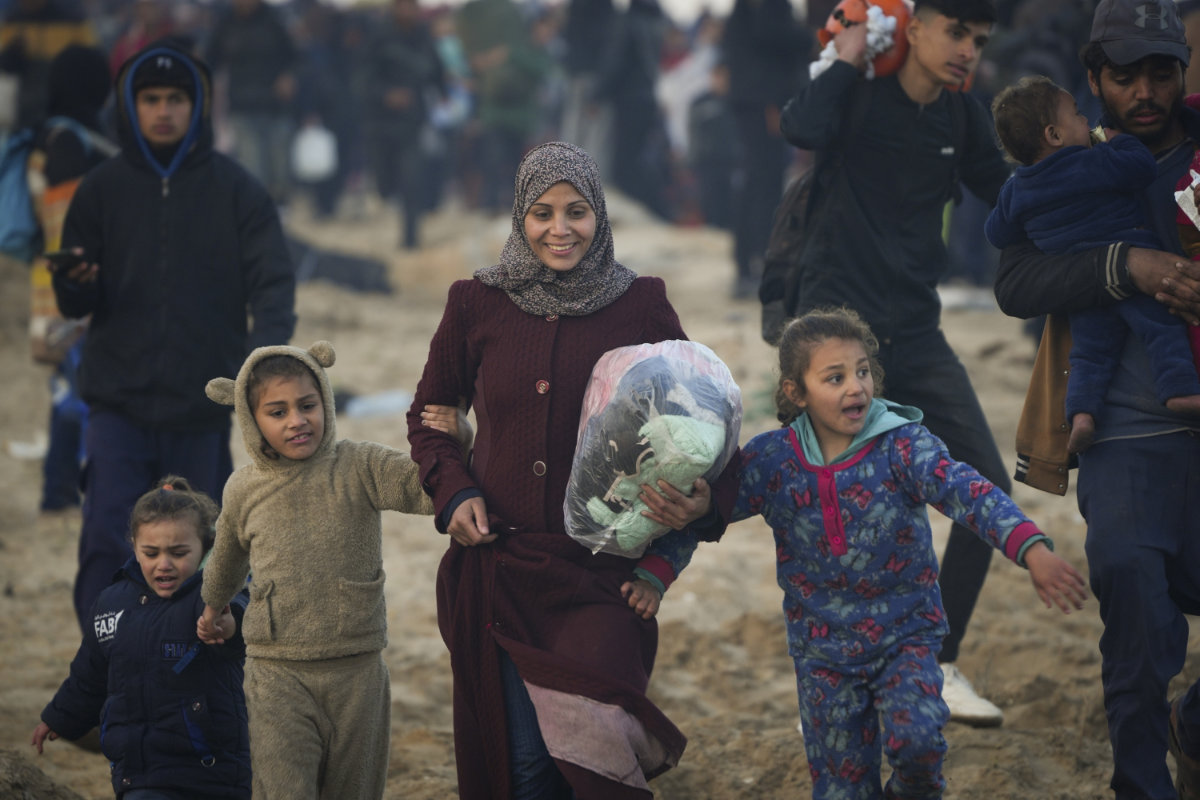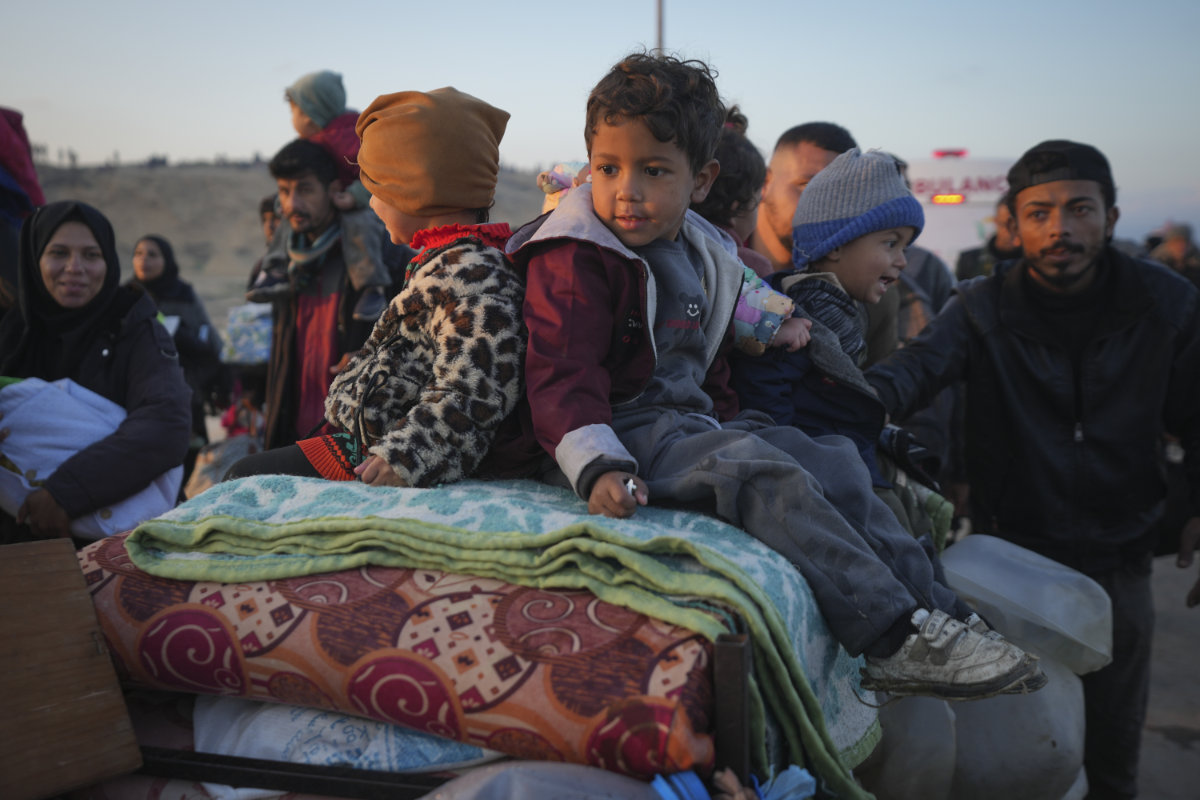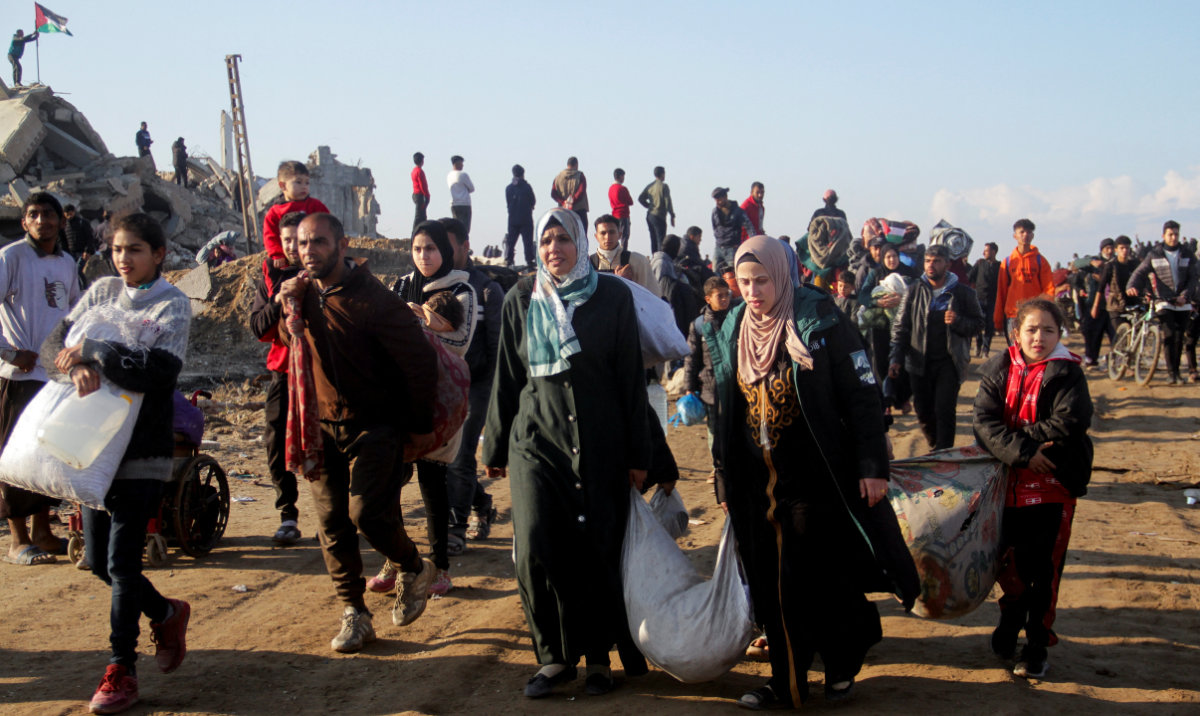NEW YORK CITY: More than 121 countries voted at the UN General Assembly in New York on Friday to adopt an Arab resolution calling for the war on Gaza to end and for humanitarian aid to be allowed to flow into the battered territory. Only 14 countries voted against it, one of which was the US.
An amendment to the resolution proposed by Canada, co-sponsored by the US and some European countries, that called for condemnation of Hamas failed to garner enough votes and was not adopted.
Before the vote, Pakistan’s permanent representative to the UN, Munir Akram, said it was “amazing” that his Canadian counterpart did not feel the need while condemning Hamas to condemn Israel, too, “for the enormity of the crimes it has committed in Gaza.” He added that “the Israeli occupation is the original sin behind this crisis and not the Oct. 7 attack.”
If Canada wants to be fair, he continued, then it must condemn both sides or name neither.
Riyad Mansour, Palestine’s permanent observer to the UN, thanked the 120 nations who voted in favor of the resolution, telling reporters that “there is still goodness in this world and we will never forget your position today.”
However, the resolution represents only “chapter one,” he added, and he vowed to continue “knocking every door” to stop the war against Gaza.
The Arab resolution, titled “Protection of Civilians and Upholding Legal and Humanitarian Obligations,” condemns all acts of violence targeting Palestinian or Israeli civilians. It
calls for an “immediate, durable and sustained humanitarian truce leading to a cessation of hostilities,” the “immediate and unconditional” release of all civilians who are being “illegally held captive,” and “the immediate, continuous, sufficient and unhindered” flow of life-saving aid to civilians throughout the Gaza Strip, including water, food, medical supplies, fuel and electricity.
It also “firmly rejects any attempts at the forced transfer of the Palestinian civilian population” and urges Israel, “the occupying power,” to rescind its evacuation order for Gazans in the north of the territory to relocate to the south.
After two weeks of almost continuous Israeli shelling, the UN has described the situation that more than 1.5 million Gazans are facing as “a catastrophe.” Much of the territory’s civilian infrastructure has been destroyed, including hospitals, schools, water and sanitation facilities, and about 40 percent of homes. Water supplies have all but run out, and there are reports that people have been forced to drink sewage water.
UN agencies have warned that very soon, mortality rates will “skyrocket due to disease outbreaks and lack of healthcare capacity.”
The UN resolution was sponsored by more than 47 countries, including Saudi Arabia, Oman, Qatar, Kuwait, Jordan, Iraq and Lebanon, along with Russia and a number of African and Latin American countries.
Lana Nusseibeh, the UAE’s envoy, who also represents the Arab Group at the Security Council, said that “120 votes in this kind of geopolitical environment is a very, very high signal of the
support for international law for proportionate use of force, and it is a rejection of the status quo that is currently happening on the ground in Gaza.”
Although General Assembly resolutions, unlike those of the Security Council, do not have the force of international law behind them, they do carry “incredible weight and moral authority,” Nusseibeh said.
She added that the 10 current non-permanent members of the Security Council will take that “moral authority” and work to develop a new proposal to try to break the deadlock within the council, which has failed four times over the past two weeks to reach an agreement for action on Gaza.
The failed Canadian amendment to the resolution, presented on Thursday and later co-sponsored by a number of European countries, called for the rejection and condemnation of “the terrorist attacks by Hamas that took place in Israel starting on Oct. 7, 2023, and the taking of hostages, (demanded) the safety, well-being and humane treatment of the hostages in compliance with international law, and (called) for their immediate and unconditional release.”
Ayman Safadi, Jordan’s minister of foreign affairs, on Thursday asked members of the General Assembly to vote for the original resolution “for the sake of Palestinians and Israelis.”
He added: “Don’t be fooled by what the Israeli ambassador has just said, that our resolution does not recognize the pain on the Israeli side. Make a stand for peace, for life. Make it clear. Make it firm.
“Don’t let them tell you that this is a war between Muslims and Jews. I stand before you as a Jordanian, as an Arab, as a Muslim, and I tell you, we value life — Muslim life, Christian life, Jewish life. We value the sanctity of life.
“The Israeli representative did not say a word about Palestinian lives shattered in this war. (I) do and I say we care about all lives, all civilians: Muslims, Christians, Palestinian and Israeli lives.”
Earlier on Thursday, Gilad Erdan, Israel’s ambassador to the UN, had condemned the Arab Group’s resolution as “absurd” and “hypocrisy beyond belief.”
“This resolution is a disgrace to your intelligence. Let that sink in, please,” he told the General Assembly. “The depraved murderers who initiated this war are not even mentioned in the resolution. The drafters of the resolution claim to be concerned about peace. They see each one of you as a puppet.
“They write a resolution completely devoid of any content related to the situation. They assume that you have already forgotten who it is that is responsible for the inhumane violence, and they just expect you to support it automatically.
“Friends, Israel is on a rescue mission to save our hostages, to save our future and to save the people of Gaza from their savage tyrants. A rescue mission. Any call for a ceasefire is not a call for peace, it is call to tie Israel’s hand. The only place this resolution belongs is in the dustbin of history. Vote against this biased resolution.”
Linda Thomas-Greenfield, the US ambassador to the UN, also campaigned against the Arab resolution, expressing outrage that two “key words” were missing from it: “Hamas” and “hostages.”
She said: “These are omissions of evil; they empower Hamas’ brutality and no member state should allow that to happen.”






























